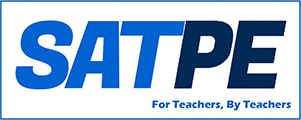Hannah Fowley
Research carried out in both the UK and around the world emphasize that educational policy is failing to combat the growing problem that attributes poverty to lower attainment in schools (McCluskey, 2017; Ladd, 2012). This has lead to governments raising awareness of the so-called “attainment gap” between the richest and poorest children in education. Empirical evidence correlates that pupils from deprived backgrounds excel less in education than students from a more advantaged background. In Scotland, it was reported that pupils at the age of fifteen and from deprived backgrounds are two years of schooling behind their more affluent peers (McCluskey, 2017). Poverty can be defined as an issue of social justice due to the stigmatisation those living in poverty experience and the financial barriers which affect their access to opportunities and resources that may be seen as ‘normal’ within society such as food and clothes (Wrigley,2012).
Consequently, children who experience poverty are ultimately restricted when participating in education or some even exclude themselves in order to save their parent’s money. In addition, deprivation can also impact on pupils’ confidence and self-esteem which can have a damaging impact on their sense of self and can lead to lowered ambitions and aspirations (Wrigley, 2012). The Scottish government has a clear dedication towards raising attainment in education and so has introduced a number of strategies with the focus being on tackling poverty. For example, they have introduced standardised testing as well as allocating ‘Pupil Equity Funding’ in order to raise pupils attainment in Scotland’s most deprived areas (Scottish Government,2017). Whilst the impact of these strategies is yet to be known, research was carried out as a practitioner enquiry to investigate how teachers’ and pupils felt their socio-economic context impacted on pupils’ academic achievement despite the government’s intervention.
The data for the enquiry was gathered from a school were many pupils attending were from areas of high deprivation in accordance with the Scottish Government’s Index of Multiple Deprivation (SIMD) measurement and less than 50% of pupils achieved three plus highers in fifth year. Data collected was predominantly qualitative, gathered through observations and conversations with staff and pupils. The two key findings of the study highlight how deprivation can have an everyday impact on pupils education. The first problem was relating to students poor choice or lack of breakfast in the morning. By questioning the pupils it was found that across fourth year classes many pupils skipped breakfast or had unhealthy sugary foods. By comparing breakfast choices to both SIMD figures of pupils and predicted grades it was concluded that whilst low attainment is affected by many complex factors, financial circumstances could lead to pupils skipping breakfast or making unhealthy choices due to cost and that this was also linked with a negative impact on attainment.
The second outcome of the research was regarding students access to extracurricular activities such as supported study. Conversations with pupils identified as from areas of deprivation revealed that they faced additional barriers to attending classes/ events organised outwith the school day with due to issues regarding the extra expense of bus money or having to babysit siblings so their parents could work. This highlights how pupils from poverty are struggling to access the extra support put in place in order to raise attainment. The results of this research highlights that as educators we should be aware of the many factors that impact on students’ learning and achievement and consider how we can support pupils to reach their full potential.
Hannah Fowley is a PE Student at the University of Edinburgh
